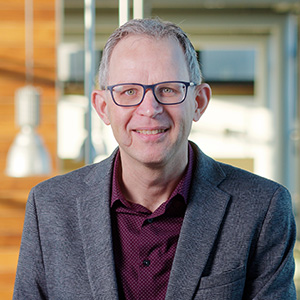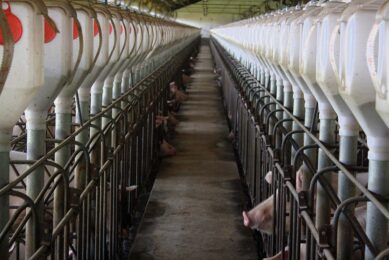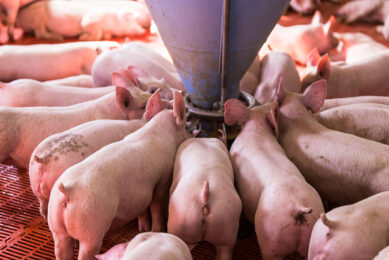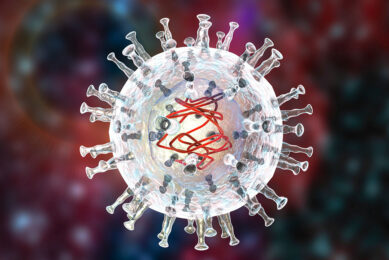Snoozing means losing in the global feed business
![Johan De Schepper has been CEO for Nuscience since autumn 2015.<br />[Photo: Nuscience]](jpg/001_949_rb-image-2788428-848x565.jpg)
[Photo: Nuscience]
Belgian animal nutrition company Nuscience has experienced a stormy growth over the last few years. Since autumn 2015, the company’s rather eventful and ambitious ride on the global waves has been steered by a new captain, Johan De Schepper. Pig Progress caught up with De Schepper to find out more.
“People say I’m passionate. If I decide to go for something, I go for it all the way – 100%, 200%. On one hand, I can give people space to explore, on the other I can also draw people into new adventures, I can make them enthusiastic.”
He has only been chief executive officer since autumn 2015, but it sounds like Johan De Schepper and Belgian-based animal nutrition company Nuscience Group are a perfect match. After all, a driven personality as CEO is what it takes to keep the company growing and changing in a similar fashion as in the previous 5 years. The company grew tremendously, expanding its global presence. From a sales figure of €104 million in 2009, the company’s income grew to a turnover level of €450 million in 2015.
Johan De Schepper
For 2 years, Johan De Schepper was Nuscience’s COO before becoming CEO in late 2015. He began his career in the agricultural sector, working for the Amylum Group, where he held various international management positions. After an 8-year stint at a venture capital group connected to the University of Leuven, Belgium, he became responsible for managing and restructuring the INVE Group. De Schepper joined Nuscience in September 2013.
“When you snooze, you lose. Fast action is key,” is how De Schepper describes the secret behind Nuscience’s sudden growth. “In fact, there are 2 things of the utmost importance. Acting rapidly and finding meaningful solutions for our clients. If you don’t have meaningful solutions, and can only act rapidly – then things come to a standstill. So this puts pressure on an organisation to continue bringing novel solutions. Standing still is literally going backwards. 5 years ago, some innovations could’ve been really brilliant, but today the same innovation can already be old-fashioned and copied by everyone.”
New production plant
De Schepper took over from Patrick Keereman, the previous CEO who stepped back in early October 2015. The official hand-over of responsibilities occurred at the inauguration of a brand new production plant near Ghent, Belgium, fully equipped with modern automated distribution equipment and a logistical layout that enables upgrading flexibility. The plant provides all types of products for the European market and far beyond, along with its flagship products – its young animal nutrition range and medium-chain fatty acid (MCFA) products.
The opening was the culmination of a phase of strong growth that commenced with the acquisition of then-named Vitamex by Dutch agricultural cooperative Agrifirm in 2010. In the 6 years that followed, Vitamex was rebranded to become Nuscience, and a series of acquisitions were carried out in promising growth markets like e.g. Ukraine, Hungary, Serbia and Brazil. In addition, a new plant in Tianjin, China was built, and a new office was opened in Singapore.
Meaningful solutions to safeguard tomorrow
When speaking of ‘meaningful solutions’ for customers, De Schepper emphasises sustainability a number of times – a word that calls for a definition. De Schepper says, “Sustainability means that whatever you do, it is not at the expense of the future. That future opportunities are not under pressure for short-time gains. Sustainability also means that effectively, you try to reduce your footprint by working as efficiently as possible. Working efficiently reduces your impact on your environment. Thirdly, an important element is ‘safety’. As working sustainably is also working safely – that also doesn’t impact tomorrow’s world. So all in all, sustainability equals ‘tomorrow’.”
When the word ‘sustainability’ is dropped, projections about the year 2050 are often not far off. In that year, Planet Earth is projected to have over 9 billion inhabitants and the challenge is to feed them all. De Schepper is optimistic about that target, saying, “I think there is much more efficiency improvement to be achieved, varying from raw materials to farming, that a cost-efficient way to produce animal proteins definitely is possible. Take for example Brazil: with regard to raw materials, harvesting soy and corn twice a year is no problem whatsoever and there are even attempts to achieve as much as 3 harvests. But Brazil, a raw material hub, is also improving technologically. Combine these 2 and you can speak of a true game changer; those are recent revolutions in a market that is demanding animal proteins.”
Antibiotic resistance costs money
Another theme related to sustainability is antibiotics reduction. De Schepper, on the company’s gut health related portfolio: “In the long run, our approach will cost society less than using antibiotics for growth promotion. Antibiotic resistance simply costs human lives, it costs money, and only when this understanding gains more acceptance, our industry will have strategies to reduce or eventually eliminate antibiotics as a growth promoter.”
South American acquisitions brought €50 mln revenue boost
De Schepper inherited a company that has rapidly transformed into a multi-product global player. Under his wings, the company is ready to grow further. Product-wise, gain is to be achieved by growing the importance of feed additives in the portfolio, currently at 10% of sales. Geographically, Russia is interesting, and so is the United States, but the company’s biggest interest is in areas where clear market growth potential can be found. To be more specific: Central and Latin America as well as Asia-Pacific.
The orientation to southern America already delivered 2 recent acquisitions, when the companies Metachem Nutrientes (2013) and Nutrifarma (2015) were added to the growing Nuscience portfolio. Both companies are in the southern states of Brazil. De Schepper explains, “These are nicely located in the heart of about 50% of Brazil’s pig and poultry production. We are in the middle of the raw materials as well as in the market. And straightaway this brought us a revenue boost of well over €50 million. This is a very nice basis to have.”
Success in China hinges on good strategy
The entire Asia-Pacific region is also a growth area. Within China, the company has a longer-standing history: the company invested there as early as 1996. Being successful in China has depended on a good strategy, explains De Schepper. “We try to convey our Western standards to Asian markets. That doesn’t only apply to products, I also mean service and advice. Recently we expanded our sales approach in China with several Dutch experts. These experts assist our sales teams with farm management advice, helping farmers not only to get the feed formulations right, but also to deal with water quality, ventilation, the herd density. This way we try to offer both farm management and nutritional solutions in one hand.”
Empathy with people for a successful company
How to deal with a company that is in a state of constant transition? De Schepper, an organisational psychologist by training, reveals, “What I do appreciate in people in general, not only myself, is that they are emphatic. That is not just a skill you can acquire. I think it is an important trait in order to be successful in a company, to motivate people to deal with things and help them to successfully achieve their targets.”
On the record, his psychology background doesn’t usually provide extra insights. Common sense, he says, does.
The Nuscience Group
Nuscience is a 100% daughter of the Dutch Royal Agrifirm Group, an agribusiness cooperative headquartered in the Netherlands. Within the group, Nuscience has a wide portfolio containing premixes, concentrates, nutritional concepts and feed additives for pigs, poultry and cattle. The company is active in 80 countries, has production locations in 12 of them, and employs 1,100 employees. The company achieved a revenue of €450 million in 2015 – a figure that grows every year. Having started out as a premix producer, Nuscience has expanded rapidly acknowledging its core competences ‘young animal nutrition’ and ‘gut health’. Under the vision ‘Challenge, Change, Care’, the company aims to be a knowledge partner for feed mills, farmers, integrations and distributors worldwide.
 Beheer
Beheer








 WP Admin
WP Admin  Bewerk bericht
Bewerk bericht